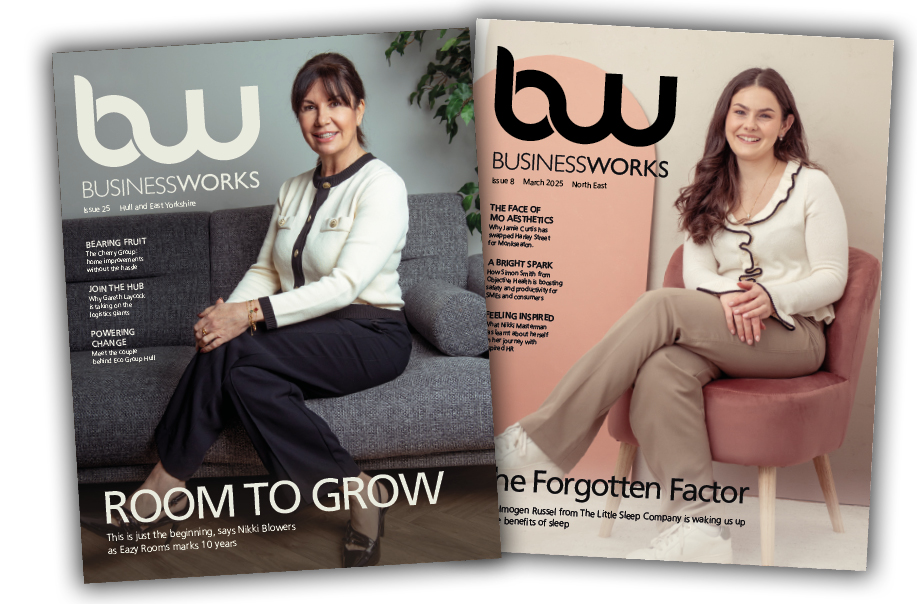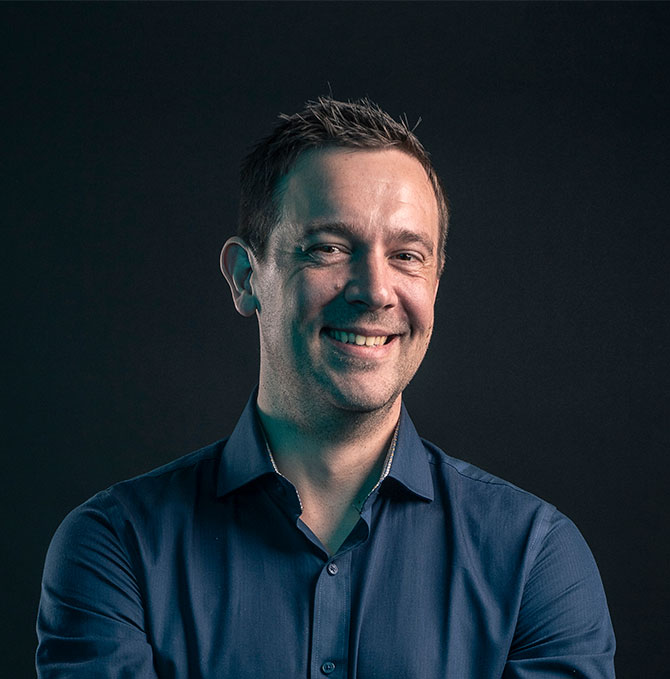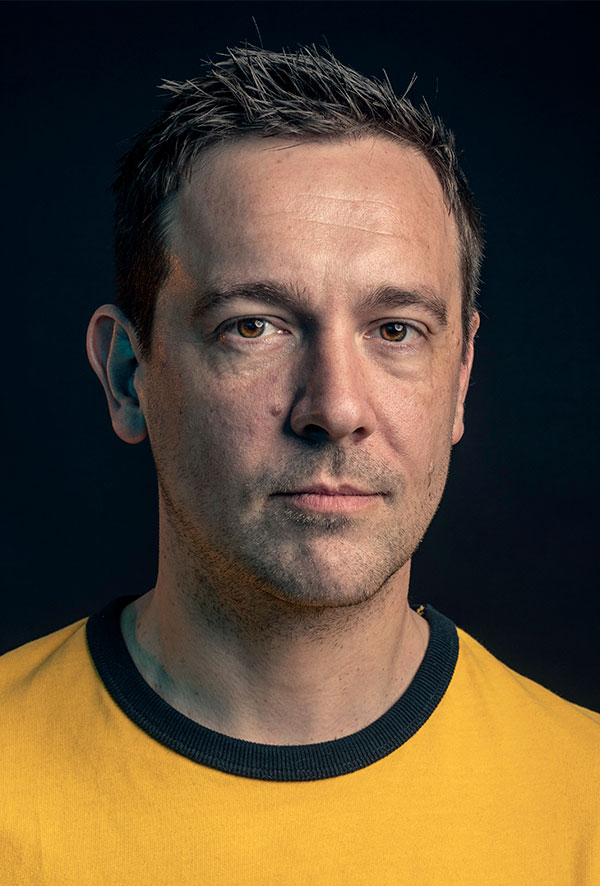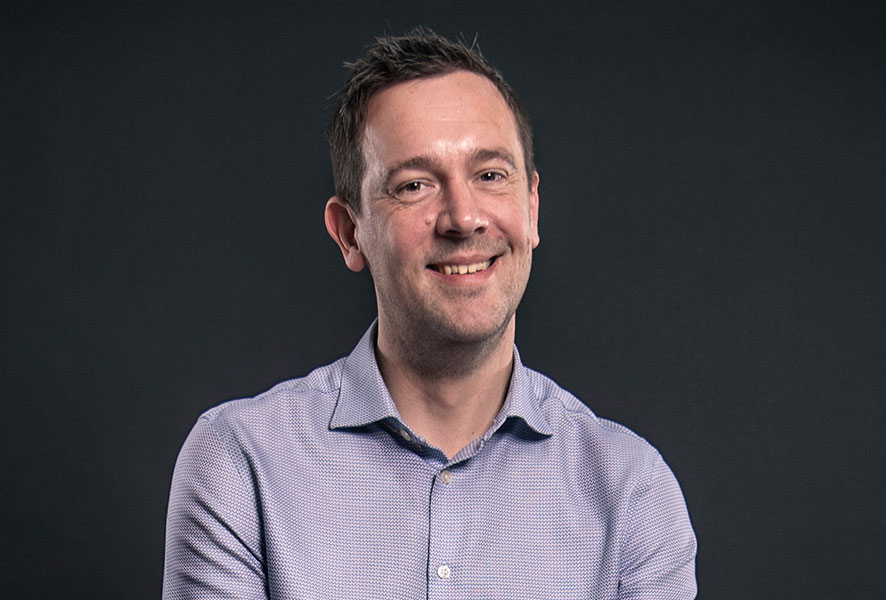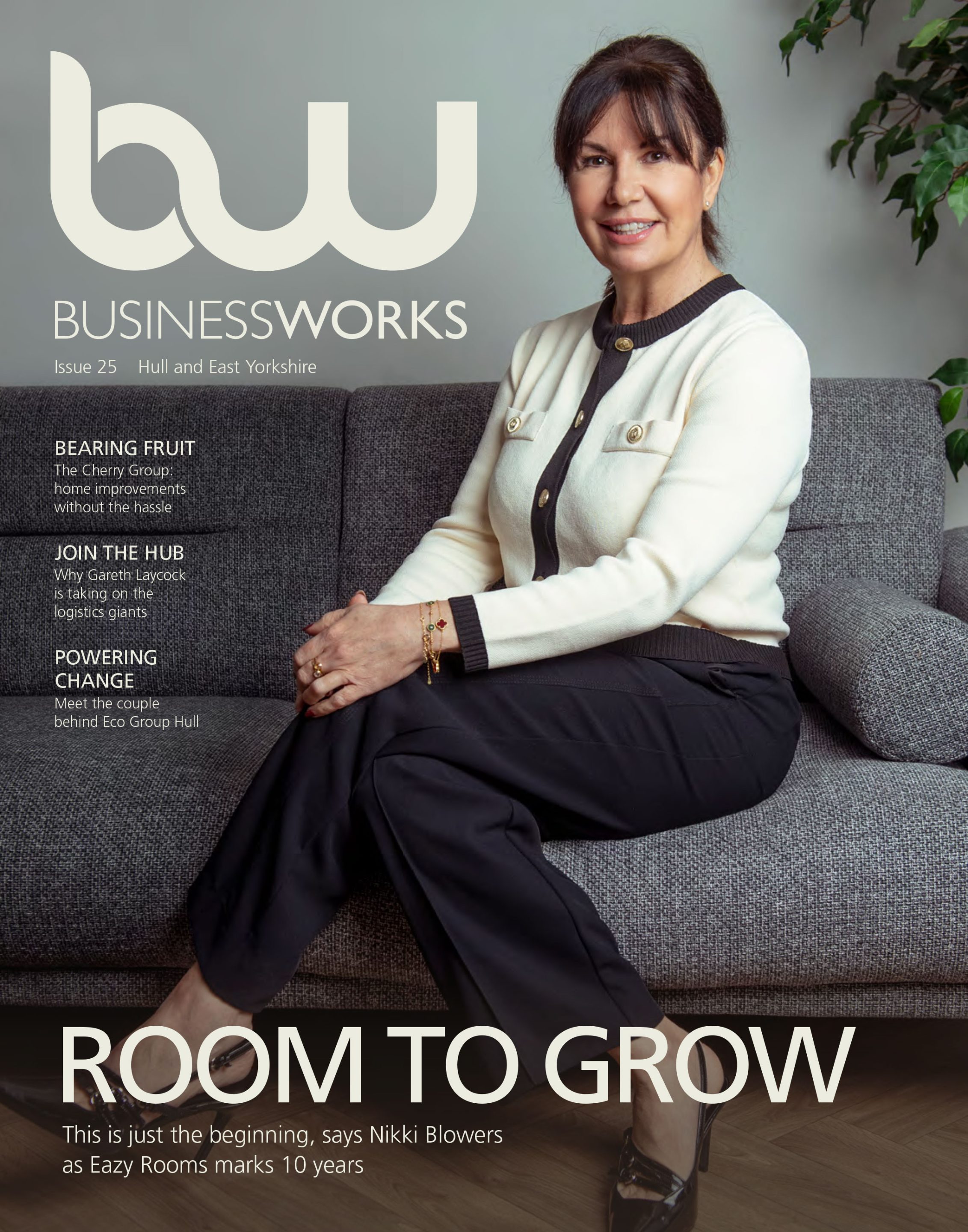David Lipton of Consortium Professional Recruitment is passionate about overturning the negative perceptions of the industry – and offering a true partnership service to employers, writes Sam Hawcroft…
David Lipton’s journey into the professional world was shaped by an upbringing within an entrepreneurial and competitive home environment. The middle son of three boys, he was raised by driven parents – his mother being a GP and his father running his own manufacturing business.
This environment, David suggests, was instrumental in instilling some fundamental values – a robust work ethic, strong moral compass, the confidence to try things, and that hard work will pay off. These examples would set the stage for his future ambitions.
Reflecting on his academic history, David acknowledges that he learned better through the inclusion of doing and experiencing over pure textbook research, following his A-levels with a keen passion in both business and psychology.
He initially went to university to study business management with HR, but after the first year it wasn’t resonating with him. “I found myself drifting,” he says. “I was spending money and time studying interesting topics, but couldn’t get as excited as I wanted to be about them. I couldn’t get a sense of their true impact in real-world settings. So in my second year I decided to look at opportunities in industry that might offer me real-world exposure to the topics and challenges I was interested in – which was how businesses really work, and trying to find solutions to problems.”
This led David to ScanSource, an American company with a significant European presence, where he gained invaluable experience as an account manager at its Hessle office. His role involved understanding project opportunities and how software solutions, integrated with hardware, could address specific business needs.
After a year of notable revenue growth at ScanSource, he sought new challenges, moving into its emerging EPOS (electronic point of sale) portfolio. Here he was managing larger rollouts for projects associated with companies such as HMV and Debenhams. After three years with the business, though, David felt himself stagnating again, and seeking a broader challenge to drive his breadth of experience.
Not certain of what his next step should look like, he went travelling for six months, seeking exposure to alternative cultures to spark his interest and ticking an abundance of places off his bucket list while he was at it.
Returning with renewed inspiration, he ventured into telecoms. He didn’t particularly “gel” with this sector, though, craving increased agility in processes and feeling a poor culture fit for himself. He persevered for about 18 months, but found himself exploring the recruitment sector, which was how he’d found his first job.
“I explored that as an option,” says David, “it ticked a lot of boxes in that it gave me the opportunity to get to know different businesses, meet a lot of different people, which I love doing, and come up with creative solutions for them.”
David initially started working as an engineering and production recruitment consultant in 2011 – he would spend the next decade building his knowledge of different industries and processes, latterly rising to become the divisional manager across two offices covering manufacturing, engineering, production, procurement and supply chain operations and IT.
Following an unexpected sale of the company and under new leadership, David supported the transition and some of the challenges presented by the Covid lockdowns. Eventually, though, he didn’t feel as though his views fully aligned with the new owners, and, rather than resist the new vision for his employer, it seemed like the natural step to strike out on his own.
“It was in 2021, towards the latter part of lockdown, we’d just had our second child and had extended the house, so I thought it was a good time to add some more stress!” he laughs. “But seriously, I felt the time was right for me to test myself in the market as much as really define under my own volition the message of what recruitment can offer to a company.”
Overturning the “negative perception” of the industry was a key motivator.
“I think it’s because it fundamentally operates on a transactional basis,” says David. “It’s a fulfillment model and not a partnership model. The service that I wanted to offer and which, I believe, Consortium Professional Recruitment does offer, is far beyond that. I wholeheartedly believe that a recruiter can be a pivotal partner in helping a business evolve and grow in the most effective and efficient way forward. And we can offer true insight. But there aren’t a lot of agencies that do offer that.”
Where Consortium differs is its bespoke, human-centered approach, David adds – and in the early days, he was fortunate to be joined by two board members who “took a risk” but believed in what he wanted to achieve.
“Ours is a made-to-measure approach to recruitment. We recognise each business is different and we’ll take the time to understand that. It’s a depth process, and it’s really just been a question of educating companies that are open to hearing about that type of approach, as opposed to the different-value proposition it offers against the mass market. ‘Human first’ is central to the way we operate – there’s a person on both sides of a conversation.
“I’ve been very fortunate that, shortly after we founded, I was approached by a couple of pervious colleagues, Dawn and Hannah, who clearly resonated with what I was doing, and allowed us to grow quicker than anticipated. It was initially a stretch on time and resource, but 100% the right decision, as it has since provided us a really strong footprint that’s helped us accelerate that growth from that early footing. They embody our values as much as I do and am so proud to have them on this journey.”
Another key to Consortium’s offering is the research that fosters a “deep understanding” of both the candidate and the potential employer. The team operates a very short list – only recommending two or three CVs based on the company’s exact briefs and knowledge not just of the role but the workplace’s entire structure, progression opportunities, culture and more.
“The potency of our offering is that we consult, and we offer market insight,” says David. “We often find that we can help a company shape the best fit for their business, and make recommendations that would otherwise not be made. If it’s a new role, we spend a lot of time consulting with companies around how to get the best balance of effect from the open candidate market – so the candidate is enriched when they join, they’ve got a well-aligned and exciting opportunity, while the company’s getting the broadest value from one headcount, and everyone grows together. It should be symbiotic. That’s a word I use a lot, as our name spells it out – we’re working towards a common objective… it’s a consortium.”
One of Consortium’s key internal metrics is two-year retention, which is becoming easier now the company is in its third year, says David. In the second year, it achieved 30% growth in turnover and over 40% growth in its client base.
“So far, we’re very effective,” he adds. “We measure ourselves against the CIPD (Chartered Institute of Personnel and Development) standards for employee retention, which is just what the open market would offer, and we expect that, if we’ve done a good job of alignment, that we should certainly operate above 90%. Our KPI is 98%. We really don’t want problems in our appointments. We accept there’s a human variable, but it’s a very high bar.”
There has been a definite shift in employment trends since the pandemic, and David agrees that workers are far more discerning, with companies increasingly needing to adapt. “More prevalent now, perhaps, is that job seekers want to optimise to their personal situation. I think lockdown offered that to a lot of people, such as working remotely, and technology has evolved to facilitate it in a much more effective way. Businesses have had to be agile, but not all were ready for that.”
It’s about finding a balance, he says. “We have an interesting and quite important role in bridging that understanding between businesses and candidates. Job seekers want to optimise for their own individual value, but they still need to appreciate that a company has an operating practice that serves a greater many. Someone who wants to work remotely might have a fantastic skillset that would benefit junior members of a team – the shared peer learning and sense of community could be lost in an entirely remote world. Culture is central to a lot of what we try to understand, whether it’s what works for a person or what works for a business – it’s trying to play a concert with all the relevant instruments. And that’s where we’ve enjoyed a lot of success. The companies we work with understand that they have to create a culture that means people want to work for them.”
David is also passionate about leveraging the company’s network to benefit the local market through its series of Consortium Collaborate workshops. Spearheaded by one of the directors, Dawn Parker, this initiative has so far covered a range of topics, from mental health to menopause in the workplace and plans are in place for a much fuller suite of programmes. “We’re keen to add value back through the networks we have grown, to a selfless end in that it just benefits the industry in the region,” says David, “and we’ll continue to grow that. It’s something that’s emerging really well, and I’m super-proud of what progress is being made, notably through all of Dawn’s hard work.. It’s independent of recruitment. We pay for it; we don’t make anything from it – it’s just there for people to access.”
David is looking to double the size of his team in the coming year, as well as expanding the office at the Ergo Centre in Hessle – but he acknowledges that Consortium’s approach to marketing has not been all that aggressive, because the nature of its work doesn’t fit everyone’s model.
“We have a presence on social media, predominantly LinkedIn, and we do ask for referrals from our network of people who’ve had positive experiences with us. We probably have to invest more in shouting about ourselves, but I’m very careful that we don’t overstretch our commitments so that we have to dilute what we do for our clients. I think we’ve balanced that well so far, and we have a plan to continue to do that.”
Entrepreneurship is a learning curve in so many ways, but one thing David is working hard on is trying to take time off. “It’s something I’m trying to get better at, but certainly the first couple of years, as you’d expect, I just took it as read that you don’t have any time off, you don’t switch off. But in year two, I felt like I was too available to the business and not available enough for my family, and I’ve worked very hard on trying to find a better balance.
“I’ve got a very close relationship with my family, and my three kids. I’m very available to them, but the business is a demand on me as well, and I have had to put better protection in place to make sure that I’m actually present for bedtime and breakfast.”
How does David define entrepreneurship?
“It’s like setting fire to the raft before you even set off, isn’t it? You know there’s a problem, but you just get paddling. But it’s super-exciting. I’ve never looked back. Yes, I’ve often said, why the hell am I dealing with all of this now? And I feel the classic curve of ‘overwhelmed and excited’ – but, boy, it’s a really rewarding journey.”

